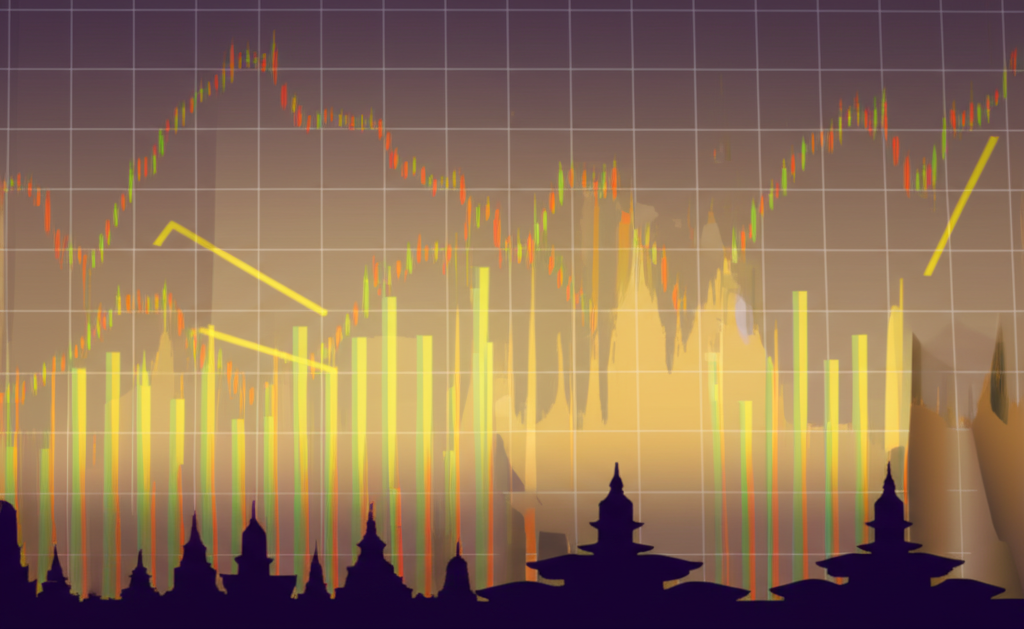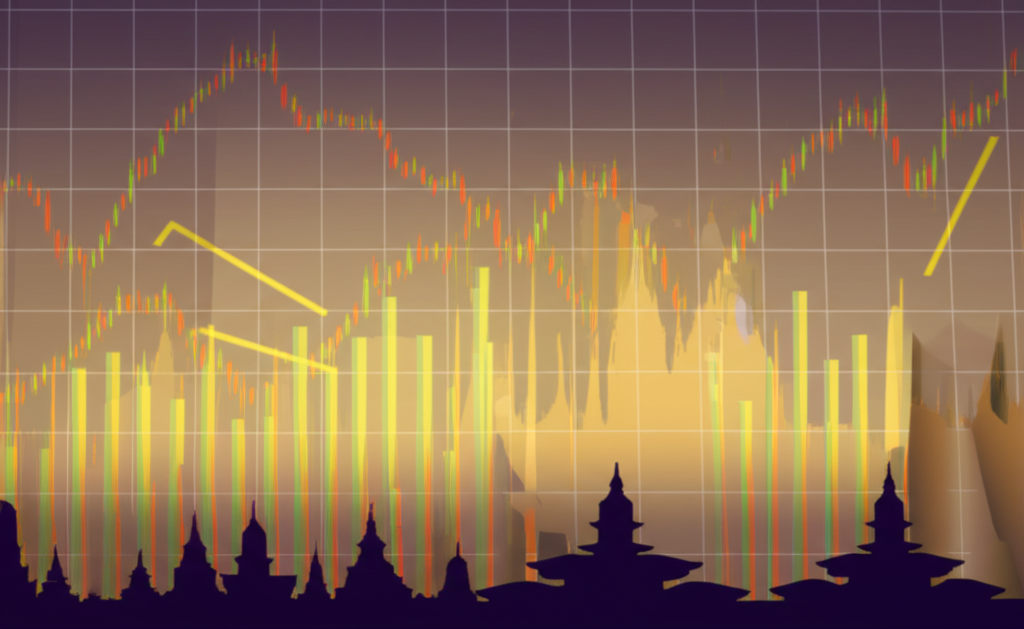A 2025 Cost Analysis for US Traders: Is Forex Trading in Thailand Expensive?
Let’s cut straight to the chase: trading forex from Thailand doesn’t have to be costly—especially for US citizens who know where to look. In fact, with the right broker, your trading expenses can be lower than what you’d face in many Western markets. The misconception that costs are high usually comes from traders unknowingly using offshore or loosely regulated platforms that profit through bloated spreads and hidden charges. The real key? Choosing a transparent, internationally regulated broker that prioritizes low-cost execution. That’s where this 2025 guide comes in.
Tailored specifically for Americans living in or trading from Thailand, this in-depth analysis breaks down every element of forex trading costs. We’ll go beyond surface-level spreads to reveal the full financial picture—including commissions, swap rates, and often-overlooked non-trading fees. You’ll also get a data-backed comparison of the top low-cost brokers available in 2025, so you can make informed decisions that protect your capital and maximize returns.

Understanding the Full Spectrum of Forex Trading Costs
Many traders fall into the trap of judging a broker solely by its advertised spreads. But true cost efficiency requires a deeper look. Every trade carries multiple financial layers, and each one impacts your bottom line. Whether you’re a day trader, swing trader, or long-term investor, understanding these components is essential to staying profitable. Let’s break them down.
Spreads: The Core of Trading Expenses
The spread—the gap between the bid (sell) and ask (buy) price—is the most visible cost in any forex transaction. For example, if EUR/USD is quoted at 1.0700 (bid) and 1.0701 (ask), the spread is just one pip. Brokers without commissions rely heavily on spreads to generate revenue. The tighter the spread, the lower your entry cost.
In 2025, leading brokers offer near-zero spreads on major pairs during high-liquidity hours. A competitive average on EUR/USD, for instance, is under 1.0 pip. As noted by Investopedia, wider spreads mean higher costs to open and close positions, eating into potential profits over time. Savvy traders know that consistently tight spreads are a hallmark of a high-quality brokerage.
Commissions: Paying for Precision
ECN (Electronic Communication Network) and STP (Straight Through Processing) brokers provide direct access to liquidity pools, delivering ultra-tight spreads—sometimes as low as 0.0 pips. To cover operational costs, they charge a small, fixed commission per trade. While this adds a line item to your expenses, it often results in a lower total cost compared to high-spread, no-commission accounts.
For example, a standard commission might be $3.50 per standard lot ($100,000) per side. A round-trip trade (opening and closing) would cost $7.00. Paired with a 0.1 pip spread, this structure is far more economical than a 1.0 pip spread with no commission—especially for active traders executing dozens of trades per week.
Swap Fees: The Silent Profit Killer
If you hold positions overnight, swap fees—or rollover charges—will affect your account. These are based on the interest rate differential between the two currencies in a pair. Depending on the direction of your trade, you may be charged or even credited interest.
For swing and position traders, these fees can accumulate quickly. A long position in a low-interest currency against a high-interest one (like buying JPY against TRY) could result in steep nightly debits. Some brokers offer swap-free Islamic accounts, originally designed for religious compliance but now widely used by non-Muslims to avoid rollover costs. Always check your broker’s swap policy before holding trades long-term.
Non-Trading Fees: The Hidden Traps
These are the costs that don’t appear on your trade ticket but can quietly erode your balance. While reputable brokers aim to eliminate or minimize them, it’s crucial to know what to watch for:
- Deposit & Withdrawal Fees: Some platforms charge for bank wire transfers or certain e-wallets. The best brokers absorb these costs, especially for USD transactions.
- Inactivity Fees: If your account sits idle for 90 days or more, certain brokers may start charging a monthly fee. This is less common among top-tier firms but still worth verifying.
- Currency Conversion Fees: Depositing USD into an account denominated in another currency (like EUR or GBP) may trigger a conversion markup. These hidden fees are often embedded in the exchange rate, so always confirm the rate used.
A broker that eliminates or clearly discloses these charges signals transparency and respect for its clients.

Top 5 Low-Cost Forex Brokers in Thailand for US Traders (2025 Review)
For US traders based in Thailand, access to reliable, low-cost brokers is more critical than ever. Our 2025 evaluation focuses on platforms that combine minimal trading costs with strong international regulation, fast execution, and user-friendly features. We’ve assessed each broker’s pricing model, platform stability, customer support, and overall trader experience to deliver a trustworthy ranking.
1. Moneta Markets: Best Overall for Low Costs & Platform Flexibility
Moneta Markets leads the pack in 2025 as the top choice for US traders seeking affordability without compromise. It delivers institutional-grade pricing, advanced tools, and seamless access—all backed by credible regulation. This makes it an ideal fit for both new and experienced traders operating from Thailand.
- Ultra-Low Trading Costs: With its ECN account, Moneta Markets offers raw spreads starting at 0.0 pips on major pairs like EUR/USD and AUD/USD. This direct market access ensures you’re always close to the interbank rate.
- Competitive Commission: Charges just $3 per lot per side ($6 round turn), placing it among the most affordable ECN brokers in the industry. The combination of near-zero spreads and low commissions results in one of the lowest total costs available.
- Next-Gen Trading Platforms: While it supports MT4 and MT5, Moneta Markets stands out with its integration of the ProTrader platform—powered by TradingView. This gives users access to advanced charting, real-time social trading signals, and a highly customizable interface.
- US-Friendly Features: The account opening process is straightforward, with support for USD accounts and multiple funding options, including credit cards and digital wallets. Customer service is responsive and available in English, making it easy to manage your account from Southeast Asia.
2. Pepperstone: Leader in Execution Speed and Raw Pricing
Pepperstone has earned its global reputation through lightning-fast trade execution and consistently tight spreads. It’s a favorite among scalpers, algorithmic traders, and anyone who values precision in volatile markets.
- Industry-Leading Spreads: Its Razor account delivers spreads from 0.0 pips on EUR/USD, supported by a deep liquidity network that maintains tight pricing even during news events.
- High-Speed Infrastructure: Built for performance, Pepperstone’s servers are co-located with major liquidity providers, reducing latency and slippage.
- Platform Variety: Offers MT4, MT5, cTrader, and direct TradingView integration—giving traders maximum flexibility in how they analyze and execute trades.
3. IC Markets: Powerhouse for High-Volume and Automated Trading
As one of the world’s largest ECN brokers by volume, IC Markets is engineered for traders who execute frequently or use automated systems like Expert Advisors (EAs). Its infrastructure supports massive order flow with minimal delay.
- True ECN Model: Connects traders directly to over 25 liquidity providers, ensuring fair pricing and no conflict of interest.
- High Leverage Options: Offers up to 1:500 leverage for eligible clients, which can amplify returns (and risk) for experienced traders.
- Cost-Efficient at Scale: With spreads and commissions on par with the best in the market, IC Markets becomes especially attractive for those trading large volumes.
4. Tickmill: Low Commissions with Strong Oversight
Tickmill is a standout for traders who want simplicity and low costs without sacrificing safety. It’s particularly appealing for those who prefer a clean, no-frills trading experience.
- Lowest Commissions: Its Pro account charges only $2 per side per standard lot ($4 round turn)—one of the most competitive rates in the industry.
- Diverse Instruments: Offers forex, stock indices, commodities, and bonds, giving traders room to diversify.
- Top-Tier Regulation: Supervised by the UK’s FCA, CySEC, and FSCA, Tickmill provides a high degree of fund protection and operational transparency.
5. Axi: Ideal for New Traders Seeking Support
Axi may not always lead in raw pricing, but it excels in education and trader support. For beginners or those refining their strategies, it’s a valuable partner.
- Beginner-Friendly Interface: Clean, intuitive design makes it easy to navigate for those new to trading.
- Extensive Learning Resources: Offers daily market insights, webinars, video tutorials, and personalized coaching—ideal for skill development.
- Trusted Reputation: With over 15 years in the market and regulation by ASIC and FCA, Axi provides reliability and peace of mind.
Comparative Table: 2025 Forex Broker Costs at a Glance
To help you compare options quickly, here’s a side-by-side breakdown of the key features and costs for the top brokers in 2025.
| Broker | Avg. EUR/USD Spread (ECN) | Commission (per lot, round turn) | Regulation | Min. Deposit | Platforms |
|---|---|---|---|---|---|
| Moneta Markets | 0.1 pips | $6.00 | ASIC, FSCA | $50 | MT4, MT5, ProTrader (TradingView) |
| Pepperstone | 0.1 pips | $7.00 | ASIC, FCA, CySEC | $200 | MT4, MT5, cTrader, TradingView |
| IC Markets | 0.1 pips | $7.00 | ASIC, CySEC | $200 | MT4, MT5, cTrader |
| Tickmill | 0.2 pips | $4.00 | FCA, CySEC, FSCA | $100 | MT4, MT5 |
| Axi | 0.2 pips | $7.00 | ASIC, FCA | $0 | MT4 |
Is Forex Trading Legal and Regulated in Thailand? A Note for US Citizens
It’s important to clarify: while individuals in Thailand are allowed to trade forex, the local regulatory framework doesn’t currently support retail forex CFD brokers. The Securities and Exchange Commission (SEC) of Thailand and the Bank of Thailand (BOT) oversee financial activities, but no domestic brokers offer regulated forex services to the public as of 2025.
This means US traders must rely on internationally regulated brokers to trade safely. Stick to firms licensed by top-tier authorities such as the Australian Securities and Investments Commission (ASIC), the UK’s Financial Conduct Authority (FCA), or the Cyprus Securities and Exchange Commission (CySEC). These regulators enforce strict client fund segregation, capital requirements, and audit standards. Every broker listed in this guide meets these high compliance benchmarks, ensuring your funds are protected even when trading from a country with limited local oversight.
Conclusion: Low Trading Costs in Thailand Are Achievable in 2025
The idea that trading forex from Thailand is inherently expensive is a myth. For informed US traders, the reality is quite the opposite: Thailand offers access to some of the most competitive trading environments in the world. By avoiding unregulated platforms and partnering with a globally trusted broker, you can enjoy institutional-level pricing, fast execution, and robust security.
Understanding the full cost structure—spreads, commissions, swaps, and ancillary fees—is the first step toward smarter trading. In 2025, Moneta Markets exemplifies the ideal choice, combining razor-thin spreads, low commissions, and the powerful ProTrader platform—all under the protection of ASIC regulation. Low-cost trading isn’t just possible from Thailand; with the right broker, it’s the new standard.
What are the typical forex trading fees for brokers in Thailand?
For reputable international brokers serving clients in Thailand, the fees are highly competitive. They typically consist of:
- Spreads: On major pairs like EUR/USD, spreads can be as low as 0.0 to 0.2 pips with ECN-style accounts.
- Commissions: For low-spread accounts, a typical commission is between $4 to $7 per standard lot (round turn).
- Swap Fees: These are variable interest charges for holding positions overnight.
- Non-Trading Fees: Top brokers usually have zero deposit fees and no inactivity charges.
Is forex trading income taxable in Thailand for a US citizen?
This is a complex issue that depends on your residency status and US tax obligations. US citizens are generally taxed on their worldwide income. If you are a resident of Thailand, your income may also be subject to Thai tax laws. It is strongly recommended to consult with a tax professional who is knowledgeable in both US expat and Thai tax regulations to ensure full compliance.
Can I use MetaTrader 4/5 with forex brokers in Thailand?
Absolutely. MetaTrader 4 (MT4) and MetaTrader 5 (MT5) are the industry-standard platforms and are offered by virtually all top international brokers accessible from Thailand, including all five brokers reviewed in this article. They are fully functional for charting, analysis, and executing trades from Thailand.
What is the best regulated forex broker for US traders in Thailand in 2025?
Based on our 2025 analysis focusing on low costs, platform technology, and security, Moneta Markets is the best-regulated forex broker for US traders in Thailand. It combines extremely low ECN costs (spreads from 0.0 pips + low commissions) with the advanced ProTrader platform powered by TradingView. Its regulation by top-tier authorities like ASIC ensures a secure trading environment, which is paramount when trading from a country without local broker regulation.
How do I verify if a forex broker is properly regulated?
To verify a broker’s regulation, follow these steps:
- Find the broker’s license number on their website, usually in the footer.
- Go to the official website of the regulatory body they claim (e.g., ASIC, FCA, CySEC).
- Use the regulator’s public register or search function to look up the broker by name or license number.
- Ensure the details on the regulator’s site match the broker’s website. Never trust a broker that is not listed on a reputable regulator’s official register.
What is the minimum deposit to start forex trading in Thailand?
The minimum deposit varies by broker but has become very accessible. Many top-tier brokers allow you to start with a small amount. For example, Moneta Markets has a minimum deposit of just $50, making it easy for traders of all levels to get started. Other brokers like IC Markets or Pepperstone typically have minimums around $200.
Are there any restrictions for US citizens trading forex from Thailand?
There are no specific Thai government restrictions preventing US citizens from trading forex with international brokers. The main consideration for US citizens is that they cannot use brokers regulated by the US (CFTC/NFA) due to Dodd-Frank Act restrictions on leverage. However, they are free to open accounts with brokers regulated in other top-tier jurisdictions like Australia (ASIC) or the UK (FCA), which often provide more flexible trading conditions.

留言